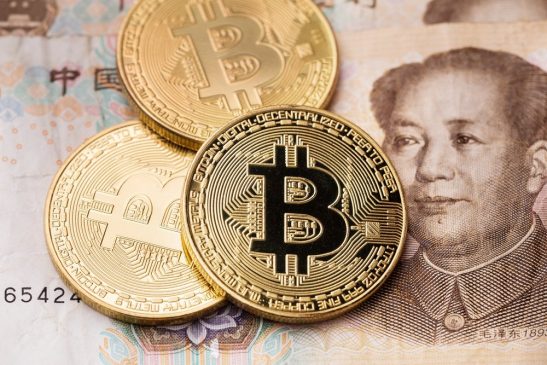By CCN: According to Sa Xiao, a Council Member at the Bank of China’s Law Research Association, it is legal for individuals to own bitcoin in China despite the government’s blanket ban on trading.
CnLedger, a recognized crypto news source based in China, said:
‘It is legal to own bitcoins in China’ says Sa Xiao, Council Member at Bank of China Law Research Association, cited by The Beijing News. Besides, Xiao considers the occasional exchange of bitcoins between individuals and individuals is legal.
In September 2017, Caixin, a Beijing-based mainstream media outlet, reported that China officially banned crypto trading, forcing exchanges like OKCoin, Huobi, and BTC China to close down operations in China.
Why is it Legal to Own Bitcoin?
To this date, crypto trading remains strictly prohibited in China. In August 2018, the government of China tightened its ban on over-the-counter (OTC) trading by requesting Alipay, the most widely utilized fintech application in the global market, to crack down on over-the-counter (OTC) bitcoin trading.
Bank of China Council Member Sa Xiao further emphasized it is highly risky for a company to run a bitcoin trading business in China. If it causes losses for potential customers, it may face “serious consequences” including punishment under criminal law.
For instance, local publications reported in recent months that more than a hundred users were scammed out of nearly $56 million in China after an individual took thousands of bitcoin from investors and promised large profit in return.
“The Beijing News reported a case which involves 100+ users who were scammed of 7000+ BTC. The scammer claimed they would borrow users’ BTC to arbitrage between exchanges and distribute profits back to users. However, scammer disappeared after users’ last large deposit,” CnLedger explained.
While trading remains strictly prohibited, the ownership of bitcoin, which is considered property or a commodity in many major markets, is still legal.
Xiao stated that even occasional peer-to-peer (P2P) trading could be recognized as one of the rights of ownership and may not be punishable under law.
CnLedger added:
Xiao’s views were based on the current legal framework which protects people’s rights of virtual properties (Bitcoin included). Occasional P2P tradings of bitcoin are in nature ‘disposition right’, one of the rights of ‘ownership’. Therefore owning & occasional P2P trading is legal.
As such, in August 2018, SCMP reported that crypto traders in China were finding ways to circumvent the strict ban on bitcoin trading imposed by the Chinese authorities.
“Industry observers are certain that Chinese investors will always find ways to circumvent increasingly tightening controls over cryptocurrency trading by mainland authorities, making it practically impossible to ever impose a complete shutdown on trading,” the SCMP report read.
While a government could make it increasingly difficult for businesses to facilitate trading, it is virtually impossible to crack down on individuals holding bitcoin or other cryptocurrencies.
Not Entirely Banned But it’s a Difficult Ecosystem to Cope With
The Chinese government has, in essence, banned every area of the crypto market that can be banned such as trading, a regulatory approach that opposes that of Japan and other major markets.
Recently, an agency under the Chinese government suggested a complete ban on bitcoin mining possibly in an attempt to restructure the crypto market to the country’s favor.
Jehan Chu, a managing partner at Kenetic, said:
The NDRC’s move is in line overall with China’s desire to control different layers of the rapidly growing crypto industry, and does not yet signal a major shift in policy. I believe China simply wants to ‘reboot’ the crypto industry into one that they have oversight on, the same approach they took with the Internet.”
There are no signs that China intends to ease its pressure on the crypto sector and trading is likely to remain banned in the near term. But, owning bitcoin and other crypto assets is not prohibited as of now.




